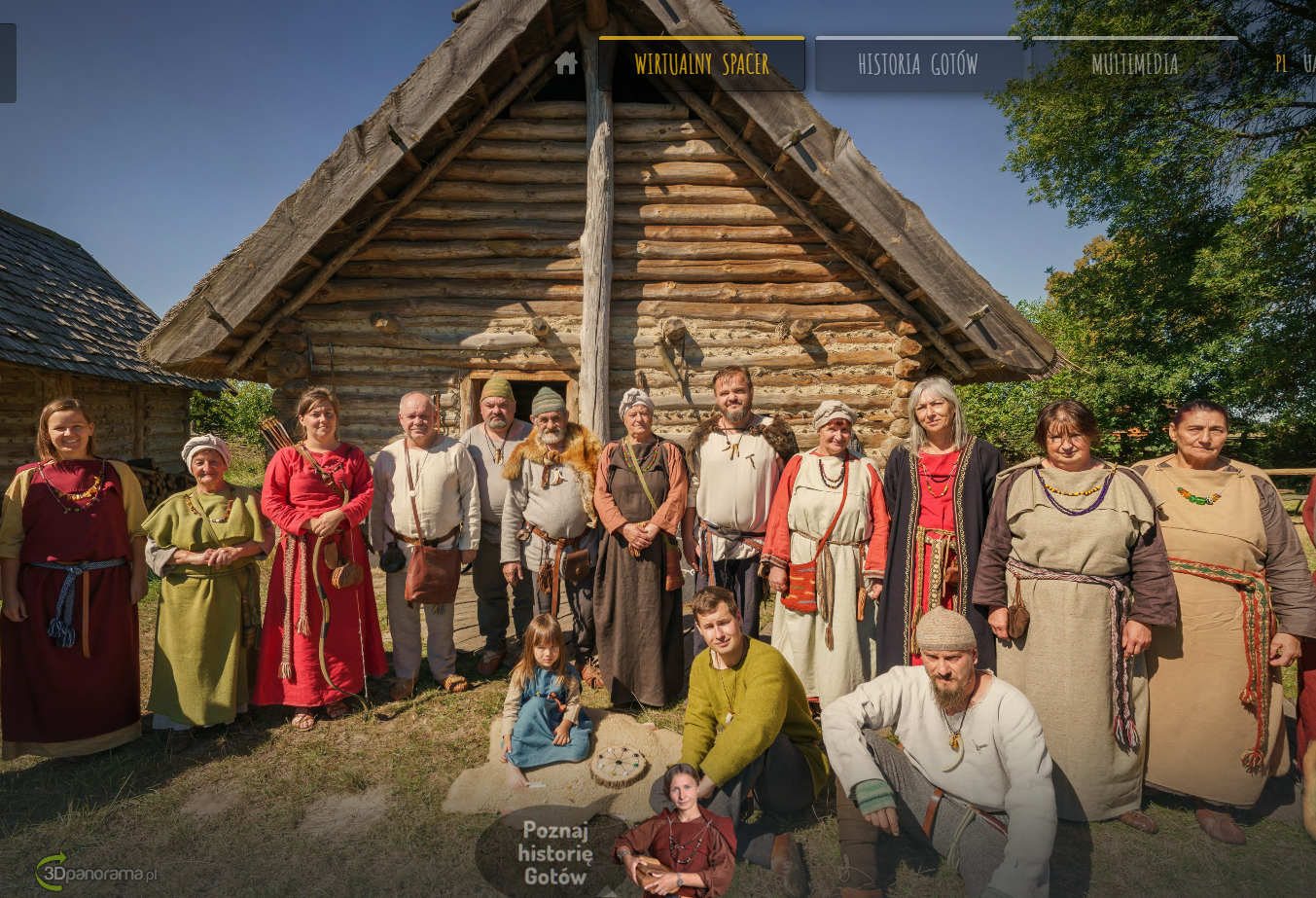
We eagerly await the colorful stories from the projects implemented under the Interreg NEXT Poland – Ukraine 2021-2027 Programme. In the meantime, we invite you to read the fascinating stories from the projects implemented under the Cross-border Cooperation Programme Poland-(Belarus)-Ukraine 2014-2020.
These projects are not just indicators, budgets, reports and payments. While these elements are essential, each project embodies the unique ideas, values, and dreams of the people carrying them out, as well as the stories of those who benefit from their implementation.
We have collected previous stories for you in two publications available in the LIBRARY on PBU website.
Dive in and get inspired!
![]()
They arrived 2,000 years ago, and captured the imagination of their contemporaries. Although the word "Gothic" is one of the most important concepts in European culture, we generally know little about the Goths. However, archaeologists and historians from the Polish-Ukrainian border town of Hrubieszów can talk about them for hours:
These tribes from southern Scandinavia were looking for new, better lands to settle, explains Bartłomiej Bartecki, director of the local Fr. Stanisław Staszic Museum and coordinator of the Polish part of the project. - They knew that there was better soil further south, on the other side of the Baltic Sea, and in the 1st century AD they reached Pomerania on boats, from where, after a few generations, they set off on another great migration - towards the south-east, where there was even better soil.
In this way, even before the arrival of the Slavs, they covered a vast area - from Pomerania to Crimea and the Balkans.
They were well aware that there were excellent glassmaking workshops in the Crimea, that trade could be conducted on a large scale, and they simply wandered south-east to the land of Oium, their "promised land".
Wandering along the rivers, however, they first reached the Hrubieszów Basin on the Bug River, where they found excellent conditions for farming and feeding the growing community, so many of them decided to settle here permanently. There was another reason for this:
The Hrubieszów-Volodymyr region - if you look at the map of Europe - is almost exactly halfway between the Baltic Sea and the Black Sea. The Goths were fully aware of this - they deliberately settled here because they knew it was a great place for... business. They imported amber or leather from the north, coveted by the far south, and from there they brought wine, glass vessels and beads, luxury bronze and silver goods. They used Roman denarii, of which at least several thousand have been found in our region to date. This is such a cultural lens - a mix of different elements from different corners of Europe - right here on the Polish-Ukrainian border.
From the 1970s onwards, the site became a veritable 'archaeological Eldorado', attracting history researchers, thanks in part to the excavations of Professor Andrzej Kokowski of the UMCS in Lublin. To this day, hundreds of artefacts have been found at the site. And thanks to the creation of the archaeological open-air museum "Goths' Village", brought to life by a reconstruction group, the site also attracts numerous tourists:
For us, it is first and foremost an adventure. We can show how these people dressed, what they looked like, what they created and how they lived. We include historians, archaeologists, students, but there are also ladies who are housewives or men in professions unrelated to history - simply the people of the region who have caught the bug," says Anna Mucha, who has been active in the Gothic Village Reconstruction Group for eight years. From time to time, the members of this group of over 30 people dress up in Gothic costumes and make period vessels, glass beads, weave and cook historical dishes. - Our association is already multi-generational - from grandmothers to grandchildren. But it is also an opportunity to get others interested - those who visit us follow up with books on events from 2,000 years ago....
Enthusiasts, museum workers and local government officials from Volodymyr in the Ukraine decided to draw on this experience by inviting their Polish partners from the Hrubieszów Commune and the Hrubieszów museum.
All the time, what we did here was scrupulously observed by our friends from Ukraine. They came to us many times for study visits and conferences, and we also have scientist-archaeologists in Ukraine as friends. When they saw that something so cool could be done in archaeology on this side of the River Bug, that it generated tourism, they saw the potential for themselves too. It was easier, because there were already joint projects, so they asked if we could join in the promotion of archaeology on the other side of the border, explains the museum director.
This is how the GothicWay project ("The Gothic Way: Joint Historic Reconstruction and Virtual Journey to the Past") was born. It resulted in the creation of a virtual tour of the Gothic Village, three-dimensional models of our Scandinavian ancestors, the purchase of interactive touch panels, the production of a multimedia animation film "Gothic Life" and a similar production for children entitled "Magic Gothic Tale", accessibility for people with disabilities has also been ensured. According to the project partners, the Polish-Ukrainian Goths' heritage is a potential for long-term cooperation:
Absolutely yes, concludes Bartłomiej Bartecki. - When, in spite of the turbulence, we managed to organise a summary conference, a lot of new ideas, possibilities opened up. We want to organise regular archaeological conferences on various topics in the coming years, and perhaps even joint excavation campaigns. We can see identical artefacts in museum showcases at our place in Hrubieszów or at our colleagues in Volodymyr. This is a huge field for cooperation, its potential is very high....
More about the project can be found here
Was this page useful?


